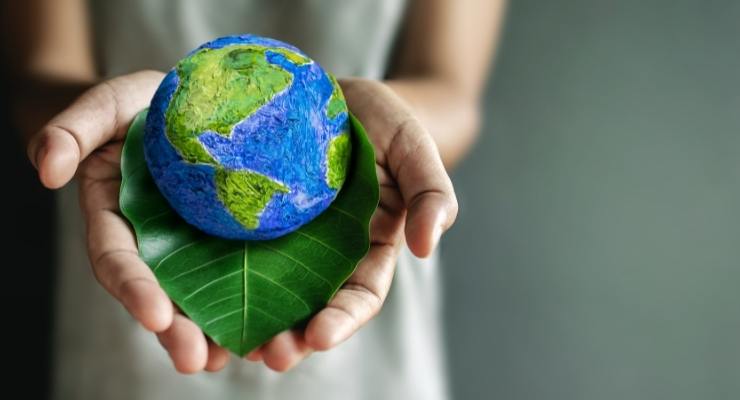07.05.22
For several years, Innova Market Insights’ Top 10 Trends survey has been headed by issues related to transparency and consumer trust. However, this year, the health of the planet took top concern globally ahead of the health of the population.
“For the first time ever, more consumers surveyed globally for Innova’s Lifestyle & Attitude Survey, say health of the planet is their top global concern, rather than health of the population,” says Lu Ann Williams, insights director at Innova, said.
Close to half of consumers are cutting food waste, and 63% say that they would like to eat at a restaurant that actively prevents or reduces food waste. As many as 20-25% of global consumers adjusted their product choices for environmental reasons such as choosing foods with eco-friendly packaging, or choosing sustainably-grown products.
Product launches carrying environmental claims are growing at three times the pace of total food and beverage activity. Ethical claims regarding the environment increased their share of total food and beverage launches from 4.4% in 2016-2017 to 6.6% in 2020-2021, representing a 17.3% CAGR over the five years ending in Q3 2021.
In the five years ending Q3 2021, launches of food and beverages using upcycled ingredients rose at a CAGR of 122%, compared with 59% for products using recycled plastic, 49% for products with water saving claims, 47% for products carrying carbon emissions claims and 36% for palm oil free products. Europe drives claims regarding palm oil with 88% of all launches with “palm oil free” claims were made in Europe.
Cost is a key barrier to shopping with the environment in mind, Innova reports. Nearly 30% of consumers say it’s more expensive to buy environmentally friendly products. Still, over half of consumers say they are willing to pay extra for food and beverage products that are devoted to solving global issues such as plastic waste (64%), ocean pollution (63%), and food waste (62%).
“In our Innova Trends Survey 2021, 55% of consumers globally say that there are too many environmental labels and they don’t know what to look for,” Williams said. “Furthermore, nearly two thirds of consumers surveyed globally agree or strongly agree that they prefer one label that captures the complete impact on the environment over multiple labels.”
When it comes to different priorities across various global regions, North America placed animal cruelty and human exploitation at the top of the charts, indicating that pure environmental concerns take second place to animal and human welfare. In Latin America, water shortages and deforestation were the top key issues as they are already impacting local lives and livelihoods, according to Innova. In Europe, consumers were most concerned with plastic waste and ocean pollution, while in Asia, a combination of food waste and plastic waste were the most highly-reported concerns, though air pollution was also highly relevant.
Innova Market Insights will be presenting new data on all key consumer trends driving the industry at booth #S1175 at the IFT FIRST Annual Event & Expo in Chicago on July 10-13.
“For the first time ever, more consumers surveyed globally for Innova’s Lifestyle & Attitude Survey, say health of the planet is their top global concern, rather than health of the population,” says Lu Ann Williams, insights director at Innova, said.
Close to half of consumers are cutting food waste, and 63% say that they would like to eat at a restaurant that actively prevents or reduces food waste. As many as 20-25% of global consumers adjusted their product choices for environmental reasons such as choosing foods with eco-friendly packaging, or choosing sustainably-grown products.
Product launches carrying environmental claims are growing at three times the pace of total food and beverage activity. Ethical claims regarding the environment increased their share of total food and beverage launches from 4.4% in 2016-2017 to 6.6% in 2020-2021, representing a 17.3% CAGR over the five years ending in Q3 2021.
In the five years ending Q3 2021, launches of food and beverages using upcycled ingredients rose at a CAGR of 122%, compared with 59% for products using recycled plastic, 49% for products with water saving claims, 47% for products carrying carbon emissions claims and 36% for palm oil free products. Europe drives claims regarding palm oil with 88% of all launches with “palm oil free” claims were made in Europe.
Cost is a key barrier to shopping with the environment in mind, Innova reports. Nearly 30% of consumers say it’s more expensive to buy environmentally friendly products. Still, over half of consumers say they are willing to pay extra for food and beverage products that are devoted to solving global issues such as plastic waste (64%), ocean pollution (63%), and food waste (62%).
“In our Innova Trends Survey 2021, 55% of consumers globally say that there are too many environmental labels and they don’t know what to look for,” Williams said. “Furthermore, nearly two thirds of consumers surveyed globally agree or strongly agree that they prefer one label that captures the complete impact on the environment over multiple labels.”
When it comes to different priorities across various global regions, North America placed animal cruelty and human exploitation at the top of the charts, indicating that pure environmental concerns take second place to animal and human welfare. In Latin America, water shortages and deforestation were the top key issues as they are already impacting local lives and livelihoods, according to Innova. In Europe, consumers were most concerned with plastic waste and ocean pollution, while in Asia, a combination of food waste and plastic waste were the most highly-reported concerns, though air pollution was also highly relevant.
Innova Market Insights will be presenting new data on all key consumer trends driving the industry at booth #S1175 at the IFT FIRST Annual Event & Expo in Chicago on July 10-13.




























